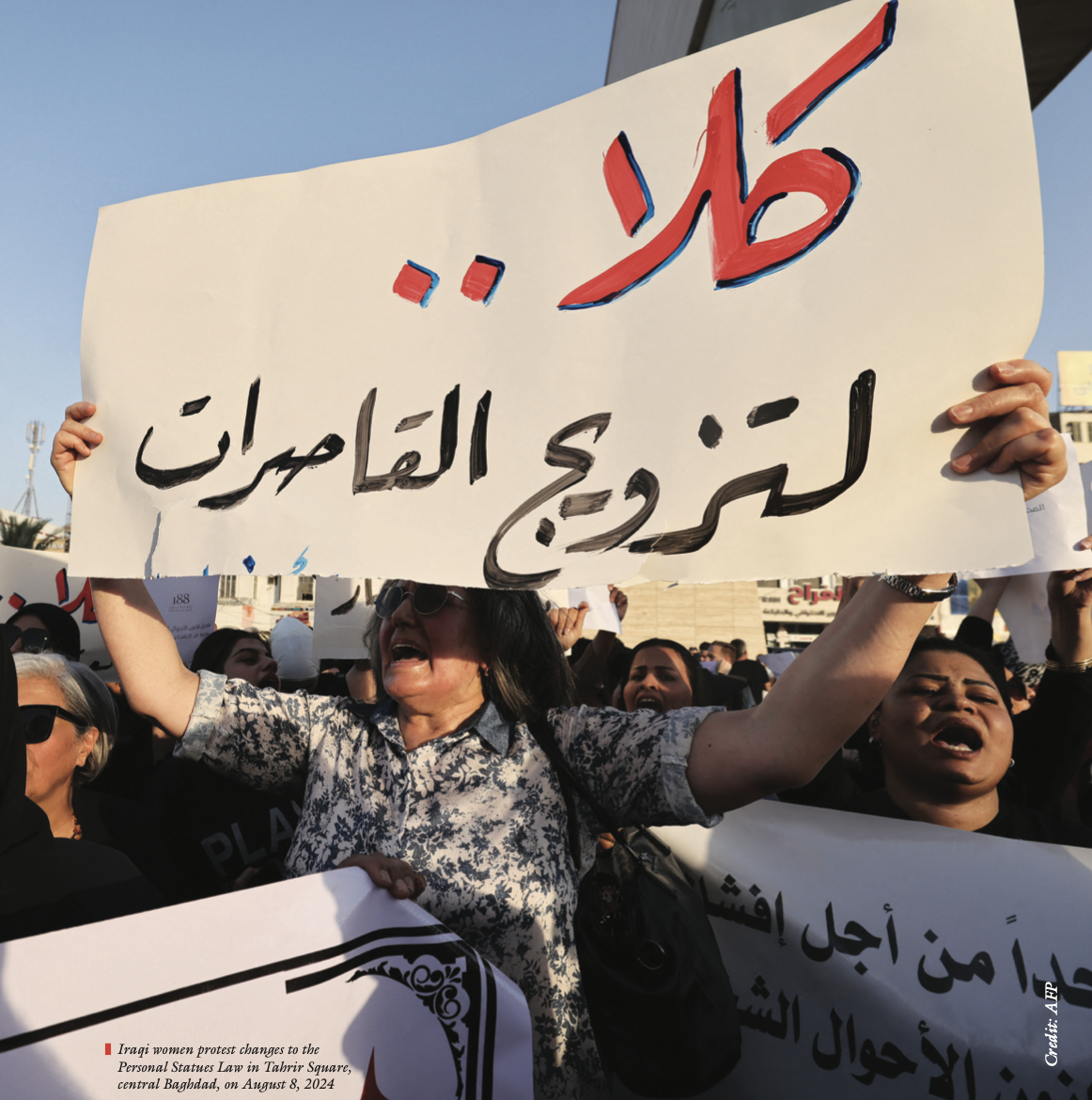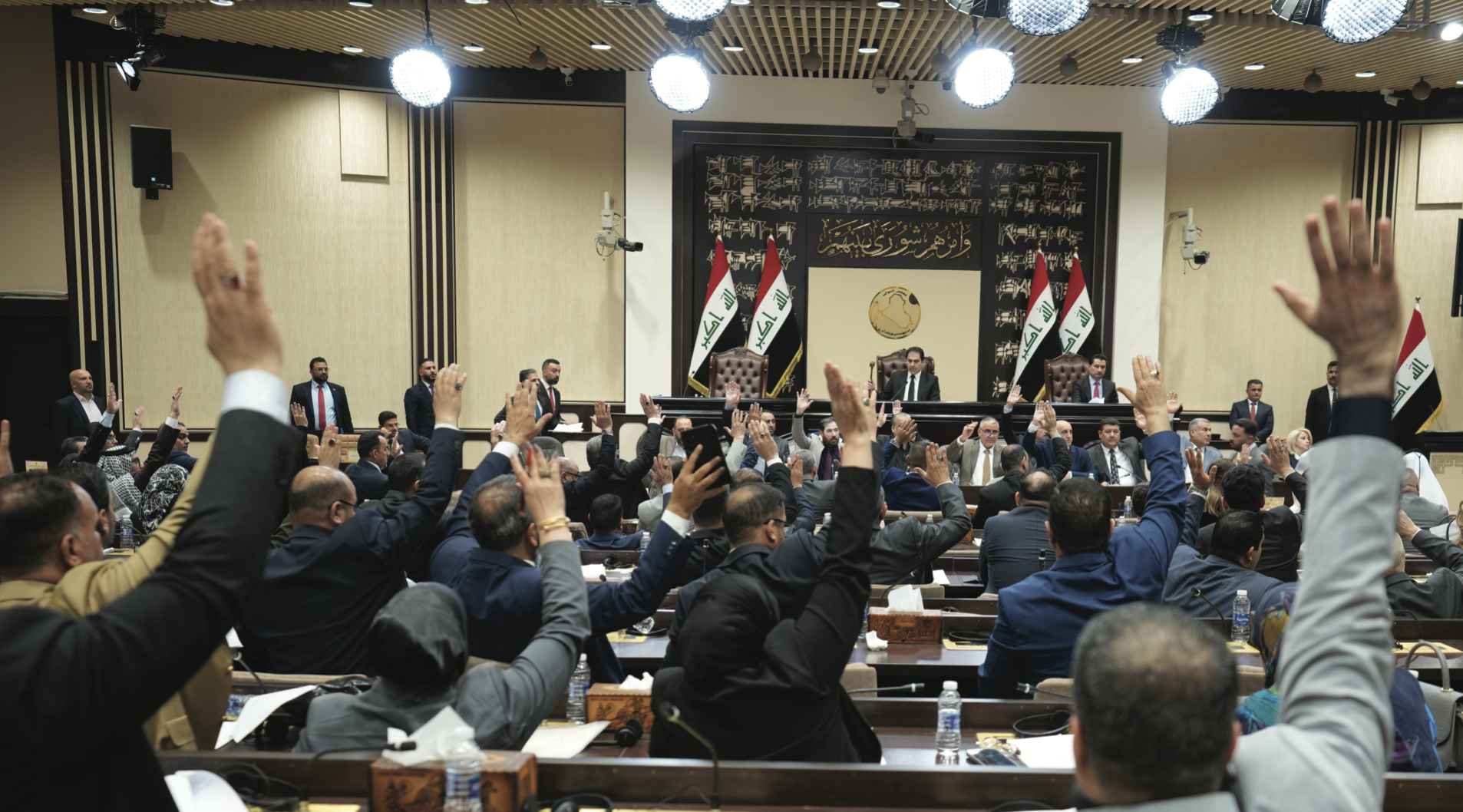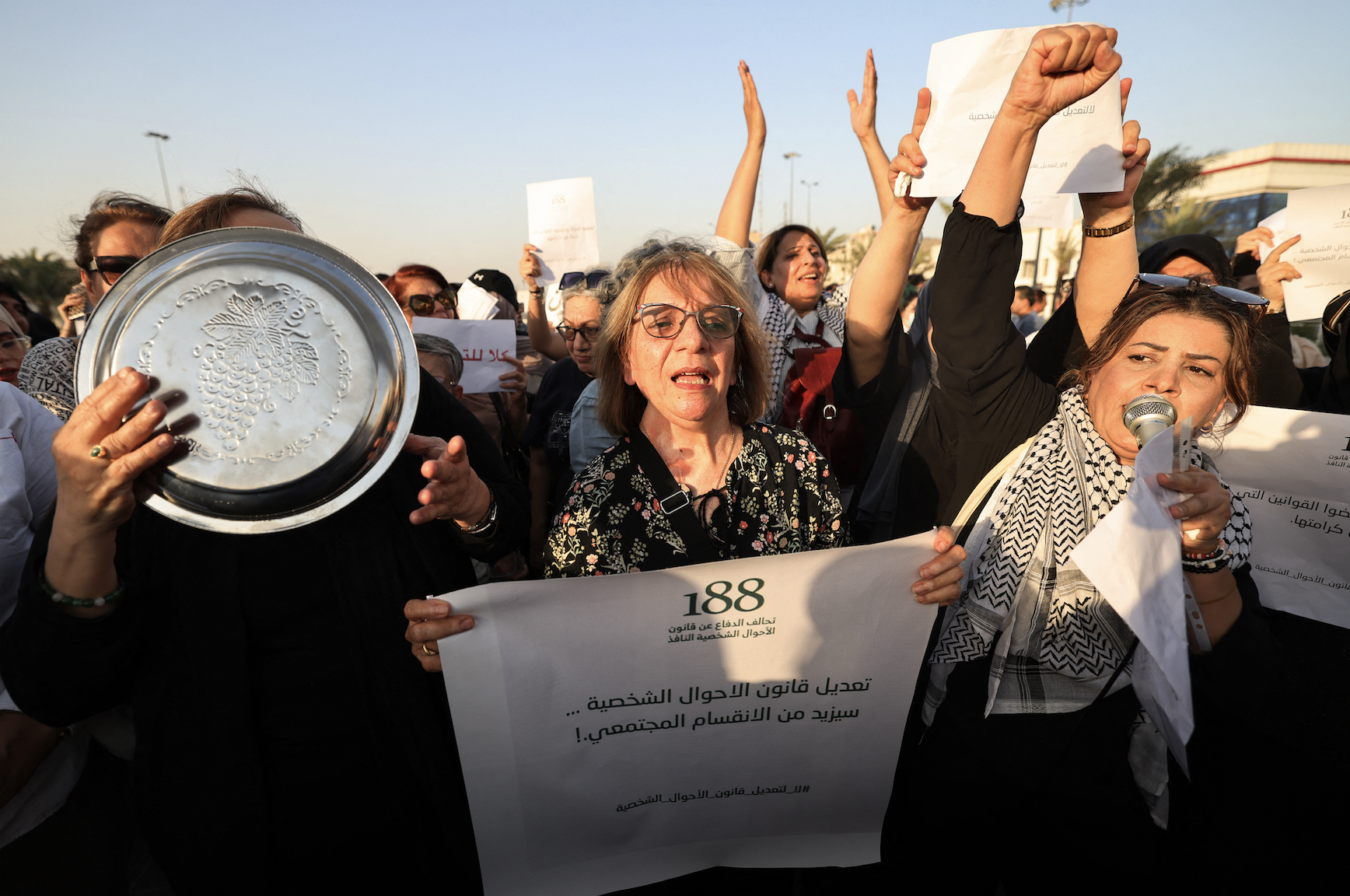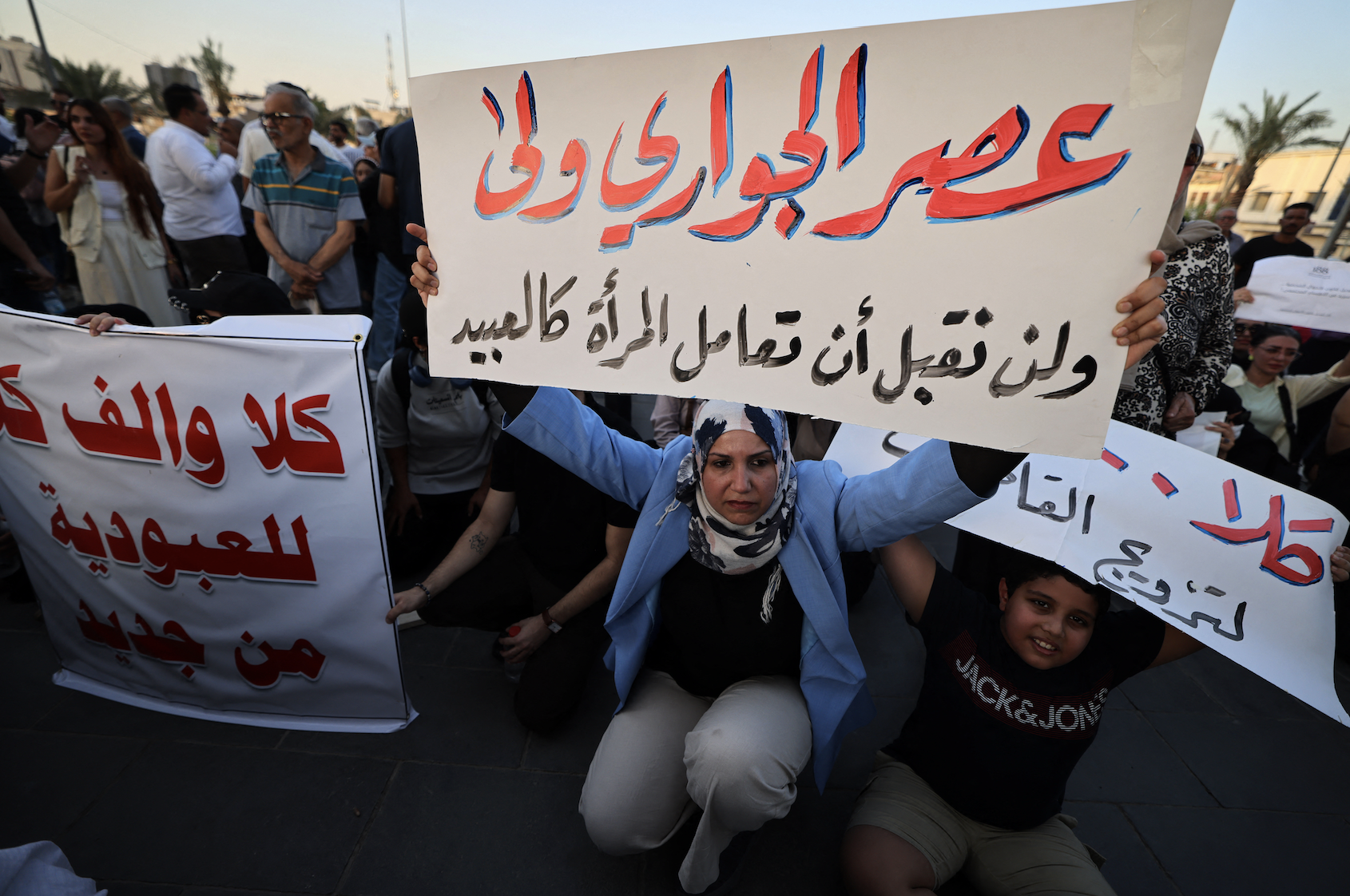Earlier this month, the Council of Representatives of Iraq reignited debate on amendments to the Personal Status Law of 1959. The first reading of the proposed amendments sparked widespread protests and opposition from legal experts, democracy advocates, and human rights defenders, particularly those championing children’s rights.
Introduced by a group of Shi’a members of parliament, the proposed bill has been met with fierce resistance from Kurds, Sunnis, and even some Shi’a women parliamentarians. Critics argue that the amendments contradict existing personal status laws and severely undermine the rights of women and children.
The bill’s justification hinges on Article 2, paragraph 1, of the Iraqi constitution, which declares Islam the official religion of Iraq and a primary source of legislation; as well as Article 41, which guarantees religious freedom and the right to personal status according to one’s religion, sect, or belief. Proponents claim the bill will empower Iraqis to adhere to their religious customs in personal matters. However, their primary goal is to enshrine the tenets of the Shi’a Ja’fari school of jurisprudence as the legal framework for Shi’a Iraqis, a move that critics contend is incompatible with the norms of the 21st century and requires substantial reform.

A step backward: Religious intolerance and erosion of civil rights
The proposed amendments seek to deepen sectarian divisions in Iraq by granting exclusive authority to men to determine religious affiliation for themselves and their families. Under the bill, the Shi’a Ja’fari school, with its centuries-old traditions, would serve as the basis of jurisprudence for all Shi’a Iraqis. Moreover, it would curtail the judiciary’s power, transferring authority over marriage to religious leaders and reducing courts to mere rubber stamps for religious decisions.
Women and children as primary victims
The proposed law poses a grave threat to women and children. It would strip women of the right to choose their religion and subject them to early marriage. While the current law sets the minimum age for marriage at 18, the Ja’fari sect permits marriage for girls as young as nine and boys as young as 15. Scientific evidence, health guidelines, and international human rights standards unequivocally condemn child marriage as harmful and exploitative.
Women would also suffer significant losses in terms of child custody, divorce rights, and property inheritance. The bill would reinforce patriarchal power dynamics, prioritizing male interests in all family matters. This directly contradicts humanitarian principles that emphasize the best interests of the child and protect vulnerable individuals.

The rise of religious authority and the decline of justice
By empowering religious institutions to oversee marriage and other personal matters, the bill undermines the role of the judiciary in protecting citizens’ rights. In a society where women are often victims of abuse, courts provide a crucial avenue for seeking justice. The proposed changes would leave women and other vulnerable groups at the mercy of religious authorities, increasing the risk of exploitation and impunity.
Moreover, granting clerics authority to resolve religious and sectarian disputes creates fertile ground for corruption, favoritism, and abuse of power. This shift away from secular legal systems would hinder Iraq’s progress and deepen societal divisions.

A recipe for instability and conflict
Iraq is already a deeply divided country plagued by conflict and mistrust. The proposed bill would exacerbate these problems by reinforcing sectarian identities and undermining social cohesion. It would erode the fragile trust between different communities and create new opportunities for violence and extremism.
Furthermore, the bill’s provisions on child marriage and women’s rights could lead to increased rates of domestic violence, child abuse, and human trafficking. These factors, combined with the weakening of the rule of law, would create a dangerous environment for all Iraqis.
Dangerous consequences
After presenting the above points, we believe that the passage of this bill will lead to several dangerous consequences, including the following:
1. Women and children would be the most immediate victims, facing a surge in domestic violence, sexual assault, and crime.
2. The bill would reignite sectarian tensions, deepening societal divisions and mistrust.
3. By weakening the judiciary and empowering religious institutions, it would erode the rule of law and leave individual rights vulnerable.
4. The very fabric of Iraqi families could be threatened, with increased risk of divorce and family breakdown.

Jawan Abdullah is a Lawyer and member of Iraqi Parliament, and Deputy Chairman of the Human Rights Committee